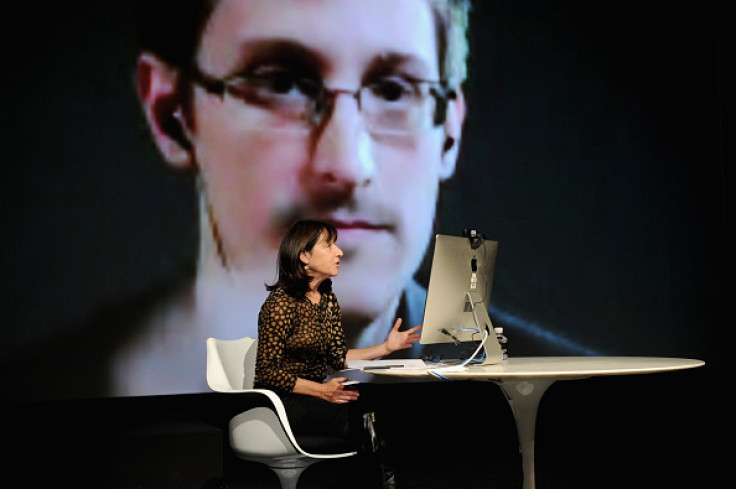Edward Snowden's Privacy Tips: 'Get Rid Of Dropbox' and Avoid Facebook

Edward Snowden has claimed that if people care about their privacy, they should steer clear from Internet social media sites, like Facebook, Dropbox and Google.
In a remote interview conducted yesterday, as part of the New York Festival, Snowden suggested some of his privacy tips.
American people don't have to know the name of every individual that's under investigation. We don't need to know the technical details of absolutely every program in the intelligence community. But we do have to know the bare and broad outlines of the powers our government is claiming ... and how they affect us and how they affect our relationships overseas. Because if we don't, we are no longer citizens, we no longer have leaders. We're subjects, and we have rulers.
Snowden called for a reform of government policies and said people who take certain defined positions, where they, "don't have anything to hide," are in fact, "inverting the model of responsibility for how rights work."
"When you say, 'I have nothing to hide,' you're saying, 'I don't care about this right.' You're saying, 'I don't have this right, because I've got to the point where I have to justify it.' The way rights work is, the government has to justify its intrusion into your rights," said Snowden.
Importance of Encryption
Snowden advised individuals to guard their privacy by using encrypted tools and discontinue services that are "hostile to privacy."
He called for a boycott of Dropbox and suggested the use of alternatives, like SpiderOak.
"We're talking about encryption. We're talking about dropping programs that are hostile to privacy. For example, Dropbox? Get rid of Dropbox, it doesn't support encryption, it doesn't protect your private files. And use competitors like SpiderOak, that do the same exact service but they protect the content of what you're sharing."
Snowden warned that while Facebook and Google claim to have updated their privacy policies, they are still "dangerous services."
Instead of exchanging messages over common social networks, Snowden recommended sending encrypted messages using services, like RedPhone and Silent Circle.
Government Surveillance Leaks
Snowden also commented on why he had leaked the documents bringing to light the US government's electronic surveillance programs.
"We can have secret programs. You know, the American people don't have to know the name of every individual that's under investigation. We don't need to know the technical details of absolutely every program in the intelligence community.
"But we do have to know the bare and broad outlines of the powers our government is claiming... and how they affect us and how they affect our relationships overseas. Because if we don't, we are no longer citizens, we no longer have leaders. We're subjects, and we have rulers," said Snowden.
The whistlblower said he has no plans to return to the United States and stand trial after seeing how the US has treated other whistleblowers, like Thomas Drake and Chelsea Manning.
"I've told the government again and again in negotiations, you know, that if they're prepared to offer an open trial, a fair trial in the same way that Dan Ellsberg got, and I'm allowed to make my case to the jury, I would love to do so. But to this point they've declined," said Snowden.
Snowden says his initial plan was to transit in Russia and move to Latin America but his passport was cancelled and he was left to seek refuge in Moscow.
He acknowledged both Russia and China's imperfect human rights and privacy records but said he was left with no choice.
The New Yorker's Jane Mayer added a lighthearted comment to conclude the interview, asking Snowden to enjoy some vodka. He replied saying, "I actually don't drink alcohol. Little-known fact: I've never been drunk."
© Copyright IBTimes 2024. All rights reserved.






